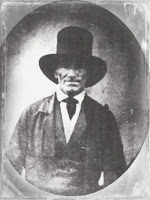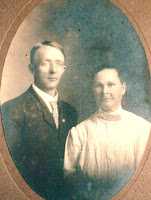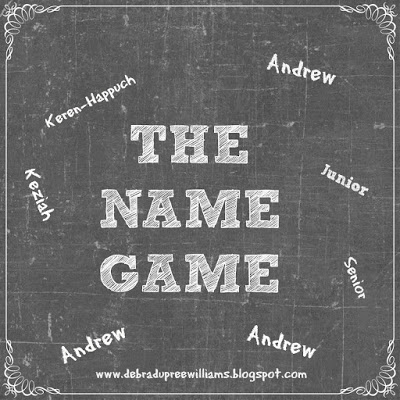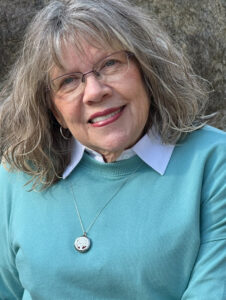I am a member of a private DNA-study page. On that page, a cousin posted about using names in a not-so-obvious way to find one’s relatives. In one of my lines, I have three Andrews in a row, my great-great-great-grandfather, my great-great-grandfather, and my great-grandfather. It was difficult to distinguish between all of them. And, in my opinion, a middle name has been assigned to one that wasn’t truly his. But he did give that middle name to his son, my great-grandfather, Andrew Jackson, plus the family name. And that great-grandfather gave his name to one of his sons, thus creating a senior and a junior. Thank goodness, that wasn’t my grandfather. I think I would have been thoroughly confused by that point. Then consider that I gave the name Andrew to my second son as his middle name, long before I knew that any of my family members bore that name, let alone that I had three greats in a row and a great-uncle with that same name. Just way too many Andrews!
Naming Patterns
Back in Colonial times, children were named by conventional naming patterns. These patterns varied slightly depending on the country of one’s origin, but for the most part, this is what they were:
Males: First-born son was named for the father’s father
Second-born son, mother’s father
Third-born son, father
Fourth-born son, father’s eldest brother
Fifth-born son, father’s second oldest brother, or mother’s oldest brother
Females: First-born daughter, mother’s mother
Second-born daughter, father’s mother
Third-born daughter, mother
Fourth-born daughter, mother’s eldest sister
Fifth-born daughter, mother’s second oldest sister or father’s oldest sister
That was a lot of kids. Today, most of us don’t have that many. But back in those days, life expectancy wasn’t like it is today. Children often died in childhood. And complicating things in a way that we would likely not do today, if a child died, they would name the next-born child of that sex, after the child that had died. You can see why tracking one’s genealogical roots could be very difficult.
She’s My What?
Back then, terminology had different meanings, too. An in-law was what we would today call a step relationship. In other words, it was a relationship created by the second marriage of one’s parent. Rather than your father’s new wife being called your step-mother, she would have been called your mother-in-law. Odd, huh?
If you are very lucky, your ancestor would have been given an unusual name, a name that would stand out in the pool of common names. Now, I’m not making fun of names here, I’m only telling you that you would likely have no troubles finding someone with an unusual name. In my family, we have a Keziah and a Keren-Happuch, both Biblical names, (Job 42:14).
Another genealogy page that I visit from time to time had these names posted this week. Mind you, these are their true names, they were not made up, Cancer Brain and Lung Cancer. There were others which were much longer. I could almost guarantee that you would be able to find these people in any search of a genealogical site.
 |
| Randolph David Miller, 1760-1790 |
|
|
Expand Your Search
When you are searching for long-lost relatives, don’t just look in the direct line. Look at the siblings
of your direct ancestor. Look at aunts and uncles. Even look at neighbors. If a neighbor was greatly admired, you may find your relative was named for such a person. In doing research on my husband’s Miller line, part of his mother’s family, I came upon a name that totally shocked me.
 |
| William Josiah and Rachel Wood Burdeshaw |
My father’s mother was a Burdeshaw, the anglicized version of the French name, Bordajeau. They came to the New Bordeaux Huguenot Colony of South Carolina in 1770. From there, they moved to south Alabama. That is where I found them living in the same area as my husband’s Miller family. One day I found a Burdeshaw Miller. Upon further research, I discovered that this is the grandson of my husband’s three times great grandfather. Jim’s GGG grandfather had known my GGG grandfather. Each man was a minister and each preached against slavery from their pulpits. They so admired one another that the surname of the one was passed to the other’s family.
At the beginning of this post, I mentioned my family DNA-study page. It is a private group on Facebook. You should check to see if there is such a study under your known surnames. Ours has a wealth of information.
Choose Wisely
I can tell you from personal experience that names matter. Think long and hard about the name you will give to or suggest for the next generation.
For whom were you named? Do you like the name you were given? What unusual names occur in your family? Do you have many ancestors with the same name? Leave your comments and share your story with us.
TWEETABLE
The Name Game @DDuPreeWilliams (Click to Tweet)




No Comments